Empowering Students
For the Future
FY 2023-2024 Annual Report: A path to collaboration and partnerships.
INTRODUCTION
The path to empowerment starts at the
Maricopa Community Colleges Foundation.
A Letter from Brian F. Spicker
President & CEO, Maricopa Community Colleges Foundation
Dear Friends and Supporters,
As we reflect on the accomplishments of the past year, I am filled with immense pride and gratitude for all that we have achieved together. The 2023–2024 year was nothing short of historic for the Maricopa County Community College District (MCCCD) and the Maricopa Community Colleges Foundation (MCCF). With your unwavering support, we’ve reached milestones that are redefining what’s possible for our students, our colleges, and the communities we serve.
Thanks to your generosity, we raised over $9.5 million in donations and awarded more than 5,458 scholarships—life-changing support that fuels dreams, eases burdens, and opens doors for thousands of students.
Celebrating a Historic Commencement Season
In May 2024, MCCCD awarded Arizona’s first-ever community college baccalaureate degrees, marking a transformative chapter in our 60+ year legacy. Eleven groundbreaking bachelor’s programs are now offered across the District, opening new doors for students to gain advanced education at an affordable cost. From Artificial Intelligence to Nursing and Early Childhood Education, these programs are designed to meet the evolving needs of Arizona’s workforce.
We were deeply honored that Mesa Community College welcomed First Lady Dr. Jill Biden as the keynote speaker for this monumental commencement — a true celebration of progress, access, and excellence.
Investing in Healthcare Careers: LPN Program Expansion
Addressing Arizona’s critical nursing shortage, we proudly announced a $3 million investment—generously funded by the Virginia G. Piper Charitable Trust and key philanthropic partners—to expand our Licensed Practical Nursing (LPN) programs at Glendale, Mesa, and GateWay Community Colleges. This initiative is not only expanding educational access but creating life-changing pathways for students, particularly those seeking to upskill from nursing assistant roles into professional healthcare careers. It’s about equity, opportunity, and a healthier Arizona.
Guided by Vision: The MCCF Strategic Plan
To guide our work and ensure long-term impact, MCCF unveiled its 2023–2026 Strategic Plan. This plan outlines clear goals and milestones, aligning closely with MCCCD’s vision for the future. At its heart is a commitment to our students, staff, donors, and the communities we serve. It is our roadmap for innovation, equity, and enduring change. We invite you to explore our strategic direction and see how your support helps shape it. Click here to read the MCCF Strategic Plan.
Fueling Arizona’s Future Workforce
Arizona’s rise as a national tech and innovation hub has positioned MCCCD as a key player in shaping the workforce of the future. With programs aligned to meet the demands of companies like Apple, Microsoft, Intel, State Farm and Boeing, our colleges are leading the way in preparing students for high-demand fields. From behavioral sciences to machine learning, our students are gaining the skills that drive Arizona’s economic engine forward. We are proud to be the bridge between talent and opportunity.
Launching the EmpowerED for Student Success Campaign
On July 1, 2023, we announced a soft launch of EmpowerED for Student Success, a bold three-year fundraising campaign with an ambitious goal of raising $20 million. EmpowerED is more than a campaign; it’s a movement to eliminate financial barriers, uplift students, and prepare the workforce of tomorrow. Every dollar raised will directly support students through scholarships, emergency grants, innovative programs, and workforce readiness initiatives. We believe education should be a catalyst for economic mobility, and thanks to your support, we are making that belief a reality.
These achievements are only possible because of your belief in our mission. Thank you for being a part of this transformative year. Together, we are building a stronger, more resilient, and more inclusive Arizona one student, one degree, and one opportunity at a time.
With gratitude and hope,
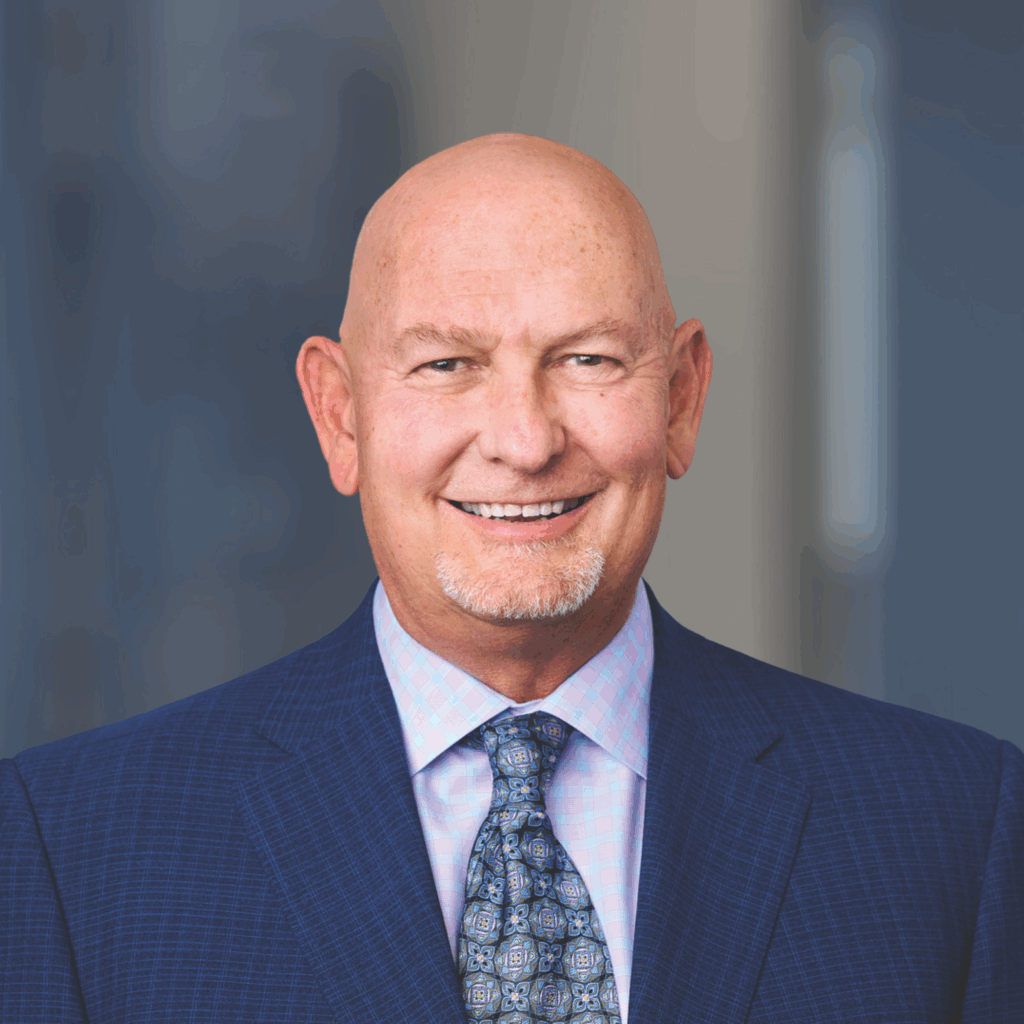

Brian F. Spicker
Our Unique Student Body

Moving Forward with Purpose and Possibility
For those leaving prison, reentry presents unique challenges – finding a job, securing housing, and simply adapting to daily life. Without the right support, those challenges can feel insurmountable.
The Rio Salado College (RSC) Incarcerated Re-entry Training Program provides education, job training, and life skills to help formerly incarcerated individuals transition successfully and build a future with stability and purpose. Funding for the program was provided through a generous grant from JP Morgan Chase.
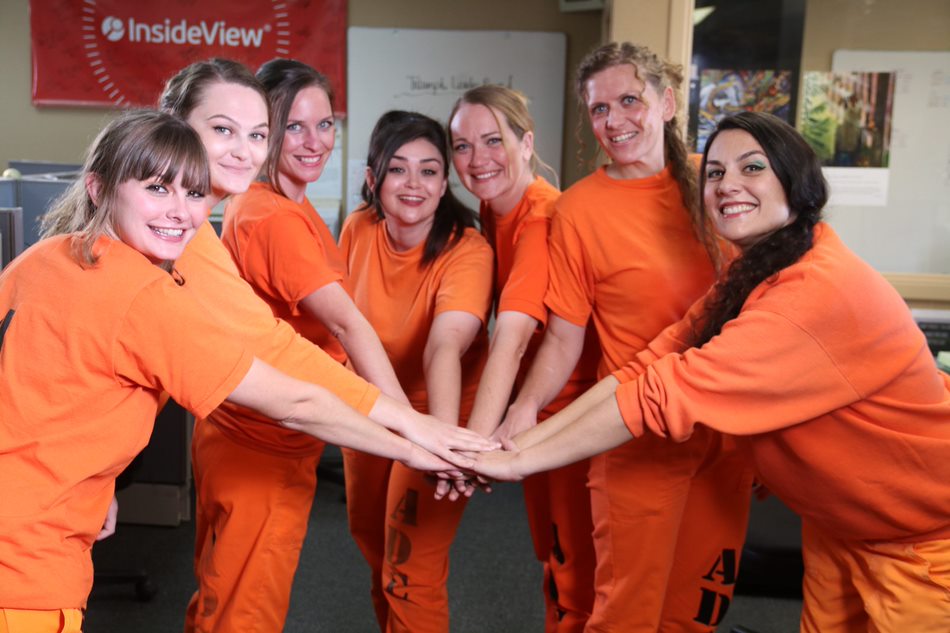
Paving the Way to Opportunity
Through RSC’s program, participants can earn GEDs, certificates, or degrees before release, equipping them with tangible credentials that increase job prospects. Vocational training provides specialized skills that align with workforce needs, making reintegration smoother and more sustainable.
The Program focuses on holistic education by also addressing barriers beyond employment, such as navigating financial responsibilities, understanding modern technology, or accessing healthcare. Training in financial literacy, job readiness, and personal development goes a long way in preparing participants to face these real-world challenges. Resources for mental health and substance abuse also help ensure participants have a foundation for long-term success.
Stronger Through Partnerships
Collaboration is the key to this program’s success. RSC partners with the Arizona Department of Corrections and correctional facilities statewide to bring education directly to students impacted by incarceration. Additional partnerships with organizations like the Federal Bureau of Prisons (FBOP), CoreCivic, and GEO Group extend the program’s impact, ensuring continued support beyond incarceration.
A Meaningful Next Step
For so many participants, this program marks a turning point. Education provides real opportunities – credentials that lead to jobs, skills that foster independence, and knowledge that empowers decision-making.
With the right support, reentry isn’t just about starting over – it’s about moving forward with purpose and possibility.

Leaving a Legacy
So much of a student’s life happens outside of the classroom. And while a college degree can transform all aspects of life, the path to graduation can be riddled with challenges. Balancing higher education while caring for a family, navigating life with a disability, or aging out of foster care without support can make earning a degree seem out of reach.
Through a 5-year grant totaling $1.5 million, The Nina Mason Pulliam Legacy Scholars Program removes these barriers by providing financial assistance, mentorship, and academic support to help students succeed.
More Than a Scholarship
Nina Scholars receive full tuition coverage, fees, books, and a living stipend, ensuring financial concerns don’t stand in the way of education. This program also offers structured mentorship, pairing each student with academic, peer, and alumni mentors who guide them through their college journey.
The program’s comprehensive support system includes extended graduation timelines and personal coaching, ensuring students have the resources to overcome obstacles and achieve their goals.
A Lasting Impact
Since its launch in 2001, more than 380 students have earned degrees through the Nina Scholars Program, graduating at rates equal to or higher than their peers. In the past five years, 93% of Nina Scholars have graduated and 85% of graduates have secured jobs in their fields of study.
Entering its 24th year, the Nina Scholars Program currently supports 25 students across Maricopa Community Colleges. By May 2025, the program anticipates celebrating its largest graduating class, including the first Maricopa Bachelor’s Degree awarded to a Nina Scholar.
Who Are Nina Scholars?
Nina Scholars include:
- Adults with dependents in the household
- College-age youth and adults with physical disabilities
- Young adults (18-25) who are financially independent and have experienced foster care or lack of family support.
The Nina Scholars Program is proving that education has the power to change lives. By removing financial and personal barriers, the program helps students focus on their studies, build confidence, and prepare for careers aligned with their passions.

Fostering Pathways to Success
Every year, about 800 children in Arizona age out of foster care. In an effort to support these young adults, Maricopa Community Colleges—in partnership with the Nina Mason Pulliam Charitable Trust—has created the Bridging Success Program, which provides educational opportunities to support the successful transition to adulthood.
Bridging the Divide Between Foster Care and Higher Education
This transition from foster care to college comes with unique challenges, including financial barriers, housing instability, and the need for strong mentorship.
“My life is complete. I feel like I am a part of a family. This scholarship has been one of my greatest achievements. They push me to go further in my life and not accept the hand I was dealt. I am forever grateful and know with them by my side, I can do great things. I now have a place to call home— not only in the physical sense. Thank you so much from the bottom of my heart for changing the trajectory of mine and my children’s lives.”
Nina Scholar & Cohort Member

Unlike larger universities that offer broad-based support services, Maricopa Community Colleges provide more focused, accessible, and personalized assistance, ensuring that students don’t have to navigate these challenges on their own.
A Holistic Approach to Success
Bridging Success goes beyond academics, offering a comprehensive support system that includes:
- Dedicated foster youth liaisons – Bridging Success Champions – who serve as a single point of contact, providing direct and personalized support. A network of 240 dedicated and trained faculty and staff provide support on each campus.
- A Mentorship Cohort (recently launched in Fall 2024) where students are paired with a Champion Mentor at their college to receive additional, personalized guidance and qualifying them for emergency funds.
- Holistic wraparound services, such as emergency funds, that address not just academics, but also food security, housing stability, and mental health.
By removing barriers and creating a structured support system, Bridging Success ensures foster youth gain the support, skills, stability, and opportunities necessary to build a strong future.
Our Workforce & Industry Reach
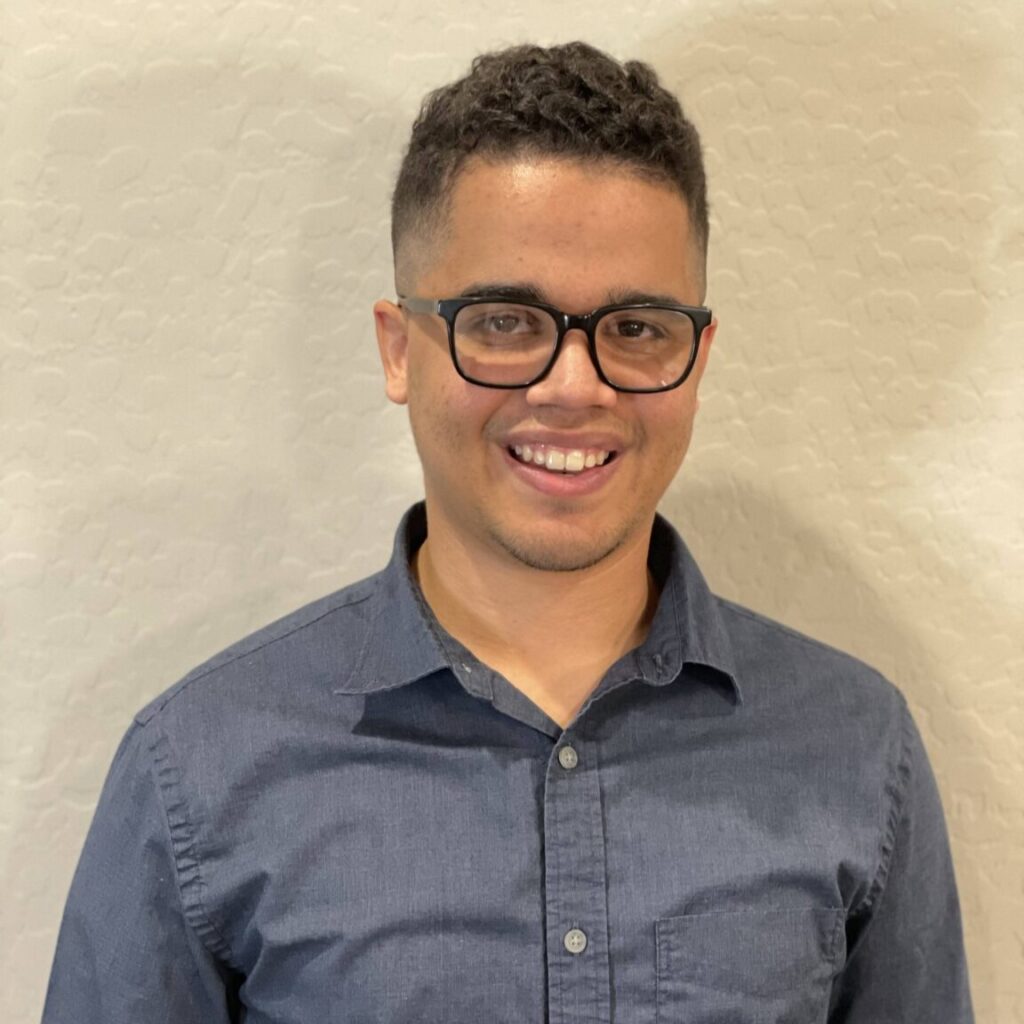
“My major is exercise science with a pathway to ASU to go into their sports science and performance programming degree. I am passionate about health, and I want to make a difference in athletes’ lives. This scholarship allows me a little breathing room with paying for this upcoming semester. We are all extremely grateful for the help. I have been working full time while taking 10 credits to progress in school and continue to try to support my family. It has been difficult, but totally worth it.“
AUSTIN,
INTEL SCHOLARSHIP RECIPIENT
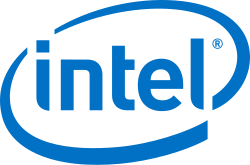
Modeling Engineering Pipelines
The demand for skilled semiconductor technicians is growing rapidly. According to the Semiconductor Industry Association (SIA), the industry projects adding nearly 115,000 jobs by 2030. Yet traditional recruitment efforts are not enough to fill these roles and there is a real risk that more than half of these positions – which require certificates or two-year degrees – will go unfilled.
Without a strong pipeline of trained professionals, the semiconductor industry faces significant workforce shortages that could slow technological advancement and economic growth.
Intel is addressing this challenge by partnering with Maricopa Community Colleges, universities, and the National Science Foundation to develop more streamlined career paths in semiconductor engineering and manufacturing.
Partnership Pathways
Intel’s partnerships actively expand career opportunities by equipping students with the skills and credentials needed for success in semiconductor manufacturing, including:
- Technical training in semiconductor fabrication, maintenance, and process control.
- Hands-on learning through apprenticeships, internships, and lab-based coursework.
- Curriculum development that directly supports certificate and two-year degree programs aligned with industry needs.
- Scholarship and funding opportunities to make semiconductor education more accessible.
One notable example of Intel’s commitment is its donation of 200 Terasic DE10-Lite hardware kits, ensuring students gain valuable real-world experience without the financial burden of purchasing expensive hardware. Students check out the FPGA boards for the semester, giving them hands-on experience in digital design and semiconductor technology with no added cost.
By prioritizing partnerships with community colleges and technical schools, Intel supports industry innovation while also creating accessible career pathways to high-demand jobs in the semiconductor workforce.
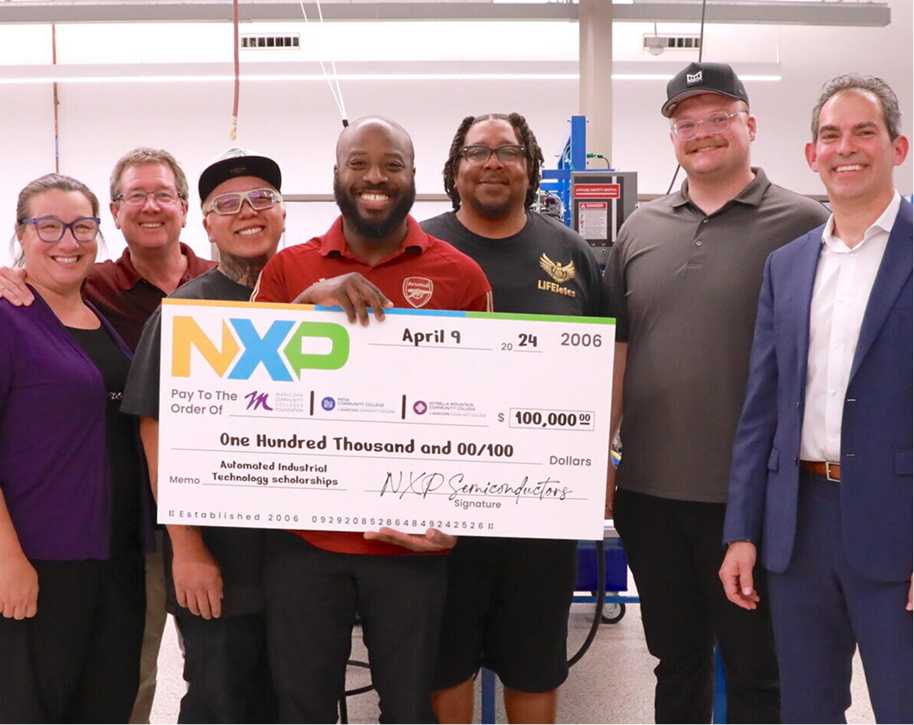
“I’m on the cusp of completing my associate’s degree with a major in Automated Industrial Technology. My ultimate goal is to leverage this degree as a stepping stone to become an engineer, recognizing that the industry is in constant evolution and plays a crucial role in shaping the future of our world.”
Matthew,
NXP Scholarship Recipient
Automating Next Gen Pathways
With the rising demand for skilled professionals in automated industrial technology (AIT), NXP Semiconductors is taking action to prepare the next generation of technicians and engineers.
NXP has established a $100,000 scholarship and endowment at Mesa Community College (MCC) and Estrella Mountain Community College (EMCC) to support students pursuing careers in industrial automation and semiconductor manufacturing. This financial assistance ensures more students – specifically women and BIPOC students – can access high-quality technical education and enter Arizona’s expanding semiconductor industry.
Preparing Arizona’s Workforce
With its strong presence in Arizona – operating an advanced Gallium Nitride (GaN) fabrication site in Chandler, a critical hub for 5G communications infrastructure – NXP recognizes the need for local, highly trained professionals.
To that end, NXP has committed to equipping students with hands-on experience and industry-relevant skills. AIT students at MCC and EMCC gain experience in:
- Robotics and product assembly
- Process control and distribution systems
- Programmable logic controllers (PLCs) and automation software
- Hydraulic, pneumatic, electrical, and electronic systems
Since launching in Fall 2023, the scholarship has already supported 13 students in completing their education and entering high-demand industries.
Our Supporters' Stories
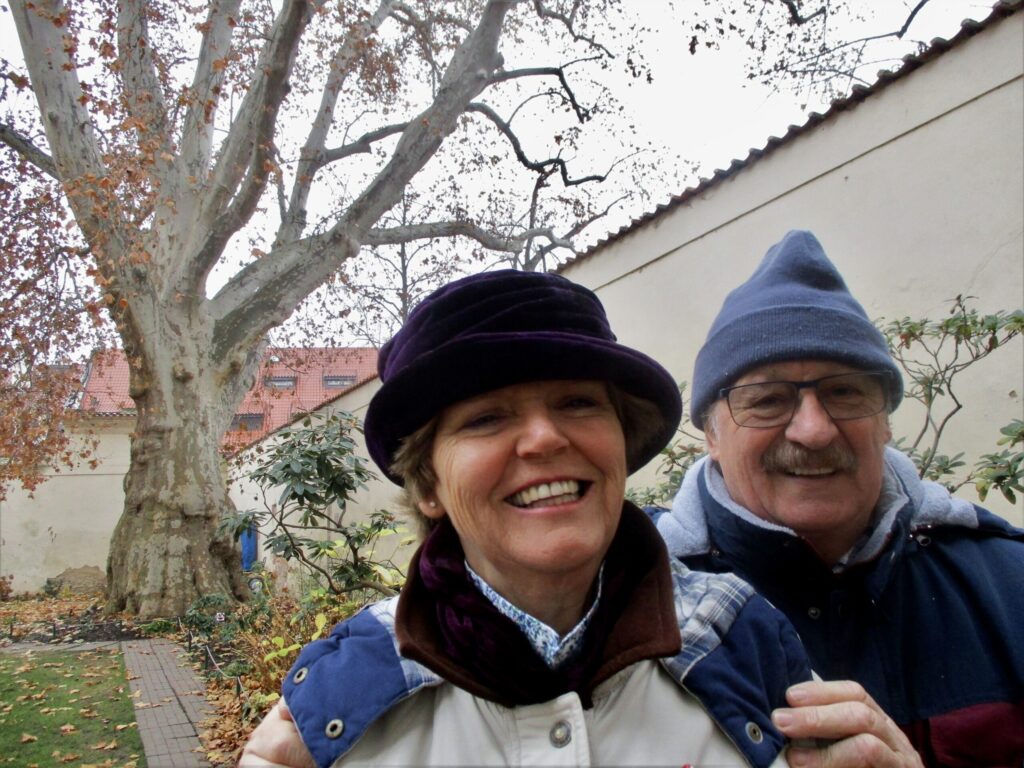
“Community college students who have opportunities for a complete range of learning and experiences — both academic and practical — also have a sense of accomplishment that can only open more doors to success in their later lives. Their sense of “I did it!” is a pleasure to behold.”
Dr. Ruth Callahan, Former Professor, Foundation Donor
Dr. Ruth Callahan
After 25 years of teaching humanities at Maricopa Community Colleges, Dr. Ruth Callahan remains deeply committed to helping students explore the rich complexity of the human experience. Alongside her husband, John, she established an endowment to ensure future generations can pursue humanities studies – a field she believes is essential to developing historical awareness, insightful thinking, creative expression, and empathy.
Dr. Callahan’s was also instrumental in launching the Prague Study Abroad Program for Maricopa, serving as one of the program’s early faculty and returning multiple times to teach. She created Introduction to Holocaust Studies – a course brought to life through powerful site visits to Theresienstadt and Auschwitz. John, joined her every year, making it possible for students to travel to nearby Poland as part of their experience. Their involvement didn’t stop in the classroom; they continue to meet with scholarship recipients after their return home to hear about the impact of their experiences.
Through her continued support, Dr. Callahan hopes to make these life-changing opportunities more accessible – giving more students the chance to learn, grow, and find their place in the world.

“I don’t have any heirs, so I want to leave a legacy in my estate that is going to several causes that I believe in, the bulk going to the Foundation to support trade and technical education. I’d like to do my part to emphasize the skilled workforce that we need, and where to focus our efforts to get it.”
Douglas Kluender,
Foundation Donor
Douglas Kluender
Even though he enjoyed a 26-year career in state government, Arizona native Doug Kluender always had a passion and appreciation for technical education. After he retired early at 46, he started looking for his next act.
Doug had always been mechanically inclined, working on cars, boats, and off-road racing with his father, who owned a service station. He also had a creative streak. Looking for a way to combine these interests, he went back to school to take a refresher welding class, which led him straight to a second successful career in architectural metalwork (blacksmithing) for the next 20 years.
This multi-faceted professional life, and a close connection with a fellow donor, drew Doug to the Maricopa Community Colleges. A tour of Phoenix Skills felt like a welcome throwback to the days when vocational and technical training were a standard part of education, and students graduated ready to join the workforce. He knew this is where he could leave his mark and make a difference.
Recently Doug purchased the required tools for two vocational programs at the Maricopa Skills Center: machine tool operators and auto body technicians. He’s also established a scholarship available to students at any of the Maricopa Community Colleges, supporting his belief that skilled workers are critical to society’s infrastructure and people need accessible paths to careers – without accumulating significant student debt.
Doug’s ultimate goal is to leave a legacy that supports technical and trade education, addresses workforce development challenges, and provides opportunities for people to gain practical, job-ready skills.

Ruth Callahan
Lorem ipsum dolor sit amet, consectetur adipiscing elit, sed do eiusmod tempor incididunt ut labore et dolore magna aliqua. Ut enim ad minim veniam, quis nostrud exercitation ullamco laboris nisi ut aliquip ex ea commodo consequat.
Financial Reports
Philanthropic Revenue
FY 2023-2024
Grant Overview
FY 2023-2024
Grants totals for July 1, 2023 to June 30, 2024
Top Grants
City of Phoenix
$1,500,000.00
Lowe’s Foundation
$1,000,000.00
Helios Education Foundation
$621,700.00
Nina Mason Pulliam
Charitable Trust
$310,340.00
Intel Corporation
$200,000.00
State Farm via Cybergrants
$170,000.00
Grants Submitted: 76
Grants Awarded:
$3,891,725
Grant Submissions & Awards
- Grants Submitted: 76
- Letters of Intent Submitted: 5
- Grants Awarded: 58
- Grants Denied: 18
Other Notable Grants
- State Farm via Cybergrants: $170,000.00
- JPMorgan Chase Foundation $131,525.00
- The Flinn Foundation $117,173.33
- Microsoft $100,000.00
- Salt River Pima-Maricopa Indian Community $100,000.00
SCHOLARSHIPS
FY 2023-2024
Notable Awards
State
Farm
$170,000
JPMorgan Chase & Co.
$131,525
Johnson Controls
$100,000
Microsoft
$100,000
Salt River Pima - Maricopa Indian Community
$100,000
AT&T
$70,000
Salt River Project Corporate
$55,000
Arizona Republic Season for Sharing
$52,000
Ak-Chin
Indian Community
$50,000
Scholarship Report by College
FY 2023-2024
Total Scholarship Amount:
$3,960,756

Phoenix College
Total:
$655,687

Glendale Community College
Total:
$479,793

Gateway Community College
Total:
$416,329

Mesa Community College
Total:
$1,036,133

Scottsdale Community College
Total:
$289,375

Rio Salado College
Total:
$127,017

South Mountain Community College
Total:
$230,237

Chandler-Gilbert Community College
Total:
$200,446

Paradise Valley Community College
Total:
$224,959

Estrella Mountain Community College
Total:
$259,781

Arizona State University
Total:
$39,000

Coconino Community College
Total:
$1,000
Historical Scholarship Data
Total Awarded Over Last Three Fiscal Years
$10,615,262
- FY 2022
- FY 2023
- FY 2024
- Total
Annual Emergency Funds
FY 2023-2024
Historical Emergency Fund Support
Total Awarded Over Last Three Fiscal Years
$1,409,134
- FY 2022
- FY 2023
$407,444
- FY 2024
$516,324
- Total
Affiliations & Partners
Lorem ipsum dolor sit amet, consectetur adipis.

Award Name

Award Name

Award Name

Award Name

Award Name

Award Name

Award Name

Award Name

Award Name


